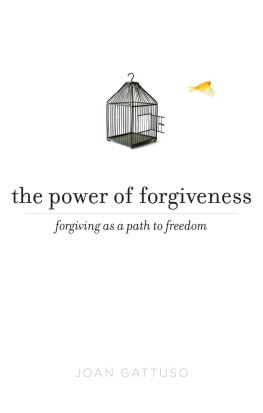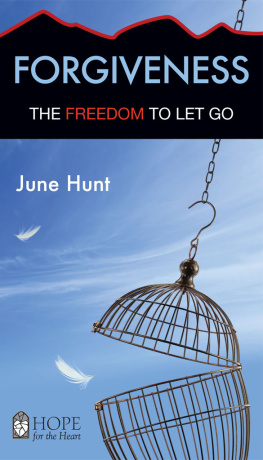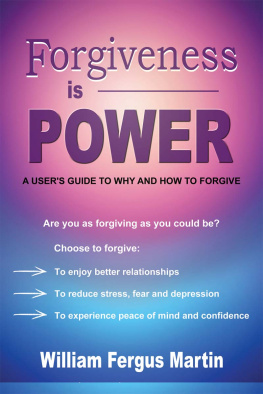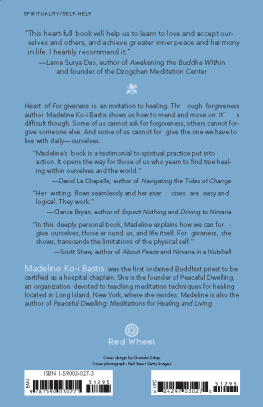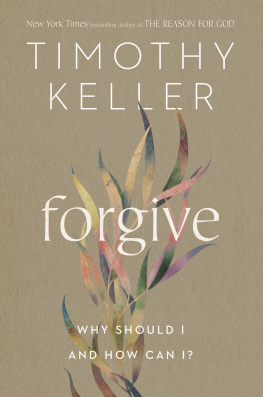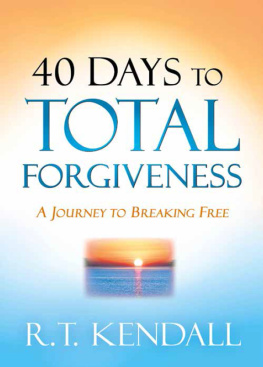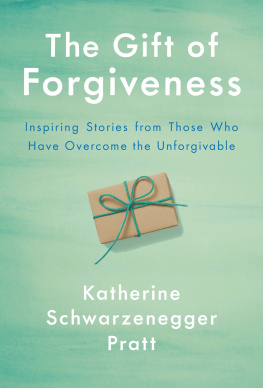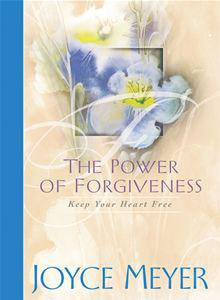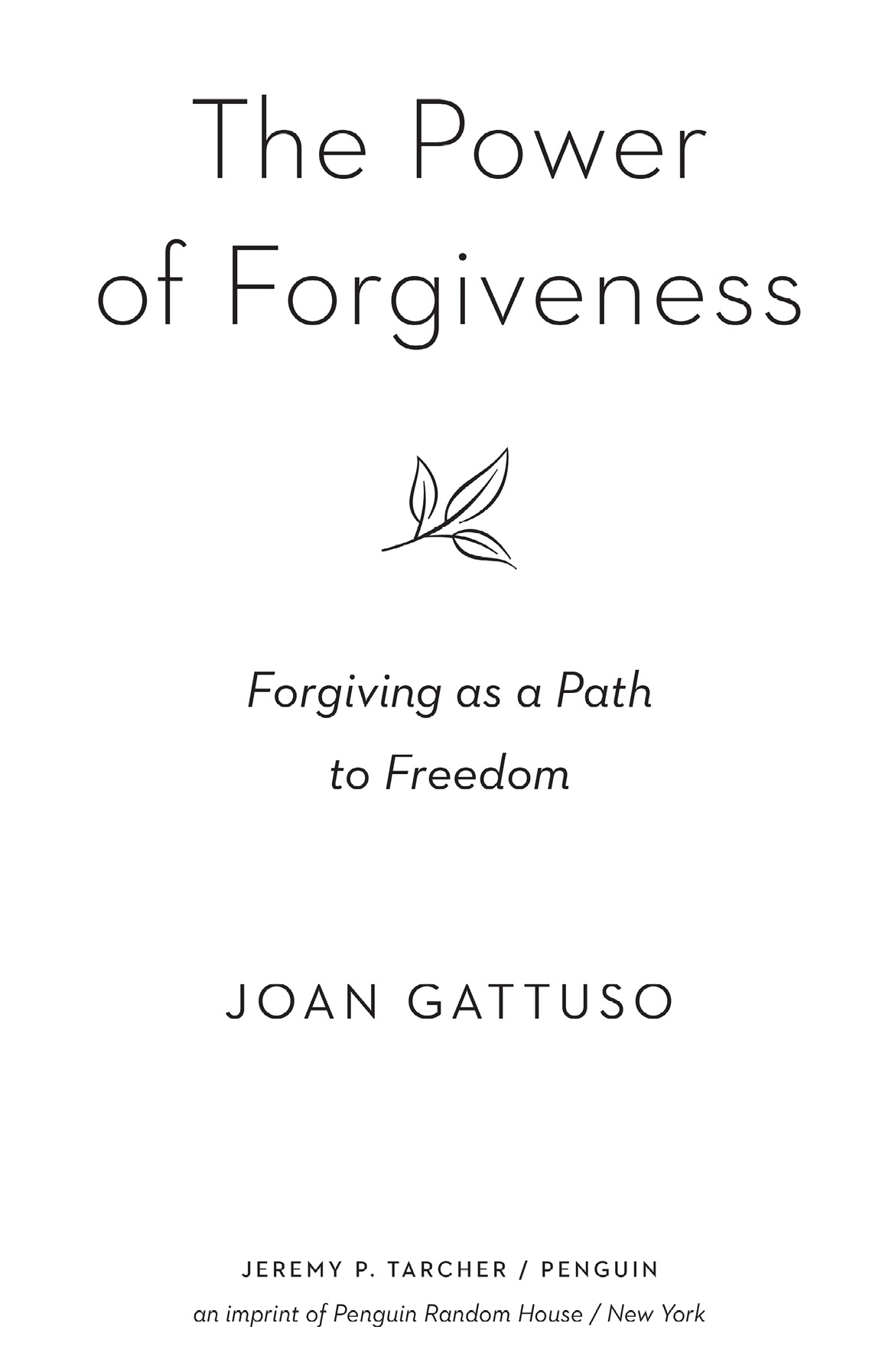I lovingly dedicate this book to all my teachers of forgiveness.
Introduction

I first spotted him when my husband, David, and I were staying temporarily in a tiny condo at the Pacific Ocean, waiting to find our perfect permanent home. We had finally realized our long-held dream to move to Molokai, one of the more rural of the Hawaiian Islands.
Returning after dark to the condo, we passed the laundry room, which was glaring with light. In the center of this bright space sat a man in a wheelchair, his physical body covered by burn scars and grafted skin. An attendant was hovering near him. Before I was able to feel compassion for him, I found myself feeling aghast at his appearance and immediately forced myself to look away. Who I saw there I couldnt quite comprehend.
My rational mind then decided he must be the survivor of an explosion in a war zoneperhaps Iraq, perhaps Afghanistan. The fleeting image of him stayed with me through the night.
The next day I was enjoying myself at the pool, chatting with a friends mother, a woman I had known from previous visits to the island. I brought up the man in the laundry room, and she told me his name was W Mitchell (no period after the W) and he had written a very uplifting book about not one but two horrific experiences that had left him in his present physical state. He hadnt been in a war, but he had gone through hell.
The woman lent us Mitchells book, Its Not What Happens to You, Its What You Do About It. I quickly devoured it, as did David. We were both moved deeply by the inner strength of this man. As you will discover later in these pages, Mitchell has what one could only call an enlightened view of forgiveness.
His story is one of many that have inspired this book. I believe that telling stories of forgiving and forgivenessmy own stories as well as othershelps all of us to experience the power of forgiveness in our own lives. For example...
Few of us in our lives will encounter anything like the Chinese communist regime that murdered one million Tibetans, destroyed six thousand of their temples, and took over their country. But one man, one of the holiest on our planet, faced just such horror.
At a young age His Holiness the Dalai Lama had to face the overthrow of his nation of Tibethigh in the Himalayas, a deeply spiritual, peaceful, and feudal land. The Chinese army of Mao invaded and, with total lack of respect for everything these gentle, nonviolent people stood for, began the systematic dismantling of their monastic hierarchic culture, their language, their customs, and their homeland.
Now, more than six decades after the invasion, the Dalai Lama is at peace with the suppression of his people. He doesnt in any way agree with it, but when he recounts the years of anguish and suffering, he becomes philosophical. Soon after the overthrow he came to realize that any hatred of the Chinese communists would only pollute his own soul. This realization was a process for him, just as it is a process for us all.
I have been extremely blessed to have been in his presence and at his teachings a number of times since 1991. Each encounter has been deeply meaningful and life enriching for me. On these occasions I know I am in the presence of a holy man who demonstrates, every second of his life, what we are all meant to be. He shows us the way to what we all can becomeof what we all must becomeif we are to establish peace once and for all on our planet.
This holy man holds no animosity in his heart in spite of the terrible acts visited on his people. Why? Because he thoroughly practices the power of forgiveness. He is able to advance along the spiritual path by leaps and bounds while forgiving the atrocities inflicted on his fellow monks and citizens. Perhaps his example can help you to forgive your brother or sister.
When we examine what he has accomplished in forgiveness, given the incredible severity of his situation, can you see how trivial your unforgiven situation can seem within the great scheme of life itself?
Some folks wear T-shirts and bracelets with the initials WWJD (What Would Jesus Do?). Now think about a situation in your life that requires the healing power of forgiveness toward someone you feel has harmed you. Ask yourself:
- What would His Holiness the Dalai Lama do?
- What would a spiritual teacher do?
- What would a holy person do?
- What would a spiritually awake person do?
- What would the most aware person you know do?
- What would and should you do?
Remember, you dont do forgiveness work to change the other person. Most likely that will never happen. You engage in these practices to change you.
In order to forgive, we have to be willing to move beyond our pain, to give up our story, to stop being the victim, to become the victor. The Dalai Lama has said that he learned that through forgiveness his mind could become clear and calm.
Forgiveness works more effectively to bring forth desired outcomes than do anger and hatred. I love this simple formula the Dalai Lama teaches to attain happiness:
First, we learn through meditation to empty the mind.
Second, in this empty mind (called clear light) compassion is now generated.
Third, compassion meets emptiness, and the result is happiness.
As a formula: emptiness + compassion = happiness
For many of us emptiness is a difficult concept to comprehend. For those whose spiritual path incorporates the spiritual and psychological teachings found in the sacred text called A Course in Miracles, I believe it is considerably easier to understand emptiness. In reading that text, one comes to understand that what we call seeing is not really seeing what is truly in front of us, because our minds are nearly always focused on thoughts from the past.

